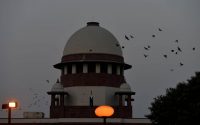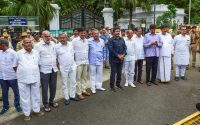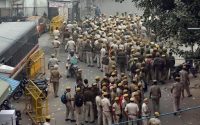$100 Website Offer
Get your personal website + domain for just $100.
Limited Time Offer!
Claim Your Website NowSupreme Court’s rule for quota candidates availing age relaxation contradicts its own view
Sources: theprint.in
A bench of two Supreme Court judges held in a recent judgment that “a candidate who has availed of an age relaxation in a selection process as a result of belonging to a reserved category, thereafter, cannot seek to be accommodated in/or migrated to the general category seat.”
This means that such reserved category candidates won’t be entitled to seats in the general category, even if they qualify the selection process with “merit”. The spirit of this judgment goes against the Supreme Court’s own views on the subject in a number of cases. And, it adds to the confusion over the selection process in government jobs and educational institutions.
This judgment goes against the constitutional understanding, under Article 16(4), of providing reserved category candidates a level-playing field by allowing them to compete in an open category.
Different cases, different views
The bench of Justices S. Abdul Nazeer and Indira Banerjee in Niravkumar Dilipbhai Makwana vs. Gujarat Public Service Commission has upheld the decision of a division bench of the Gujarat High Court, relying totally upon the statutory scheme in Gujarat, which expressly bars reserved category candidates from availing any sort of relaxation for selection under the general category.
Also read: 50% cap breached with Maratha reservation: Will this reignite quota politics across India?
The Supreme Court bench here has followed the precedent in Deepa EV vs. Union of India (2017), which also relied upon a similar statutory scheme of the Department of Personnel and Training, providing an express bar against reserved category candidates (having availed relaxation) for being considered under the general category.
Both Niravkumar and Deepa EV judgments differ from what the Supreme Court had said in Jitendra Kumar Singh vs. State of Uttar Pradesh (2010) case. The court had said: “If any person belonging to reserved categories is selected on the basis of merits in open competition along with general category candidates, then he will not be adjusted towards reserved category, that is, he shall be deemed to have been adjusted against the unreserved vacancies. It shall be immaterial that he has availed any facility or relaxation (like relaxation in age limit) available to reserved category.”
The judgments in Niravkumar and Deepa EV have stated that the decision in Jitendra Kumar was specifically based on the interpretation of statutory scheme in Uttar Pradesh, which did not provide express bar for reserved category candidates to be considered for posts under the general category.
In contrast, the Supreme Court’s interpretation in Niravkumar that a state government has a discretion “to formulate a policy for concession, exemption, preference or relaxation either conditionally or unconditionally in favour of the backward classes of citizens”, in effect, suggests that a policy can be made to fix the number of the general category seats by seizing the claim of the reserved category candidateseven if they qualify on merit.
Also read: Dalit IAS, IRS officers say absence of quota in Modi govt lateral entry scheme is illegal
Constitution & reservation
The reasoning in Niravkumar contradicts the basic constitutional understanding of reservation system in India. In a number of judgments, the Supreme Court has itself clarified that the purpose of relaxation (age relaxation, fee concession, etc.) being provided to reserved category candidates is to merely bring them “within the zone of consideration, so that they can participate in the open competition on merit”.
The Supreme Court has also made it clear that unreserved or general category seats do not constitute a reservation for general category candidates. Such seats are open and every individual, irrespective of the category to which the person belongs, can compete on the basis of merit. A reserved category candidate can be shifted to general category on the basis of merit, but not vice-versa.
For instance, in Indra Sawhney v. Union of India, a Constitution bench of the Supreme Court had held: “[It] is well to remember that the reservations under Article 16(4) do not operate like a communal reservation. It may well happen that some members belonging to, say, Scheduled Castes get selected in the open competition field on the basis of their own merit; they will not be counted against the quota reserved for Scheduled Castes; they will be treated as open competition candidates.”
Also read: Subramanian Swamy was right. Modi’s lateral entry plan will make reservations irrelevant
Challenge to statutory schemes
The constitutional validity of statutory schemes, which debar reserved category candidates from claiming open seats on the basis of merit, therefore, ought to be challenged.
A hint in this regard was also provided by the Supreme Court in the Deepa EV judgment: “Be it noted, in the instant case, the appellant has not challenged the constitutional validity of the proceedings dated 1.7.1998 read with Rule 9 of the Export Inspection Agency (Recruitment) Rules, 1980… No argument was canvassed challenging the constitutional validity of the proceedings before the learned Single Judge or before the Division Bench of the High Court.”
There is no concept of “fixed” open category seats under the Indian constitutional scheme. The relaxations provided are merely to bring the reserved category candidates to a level-playing field, where they can also compete in open category. The judgment of the Supreme Court in Niravkumar only adds confusion to this basic understanding.
The author is LLM postgraduate from Harvard Law School. Views are personal.
Read Global Pulse for a sampler of the big international stories, and why they matter



